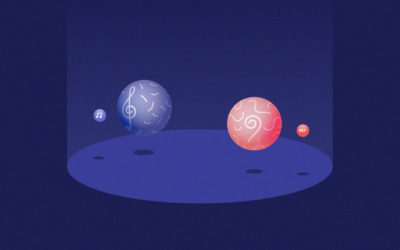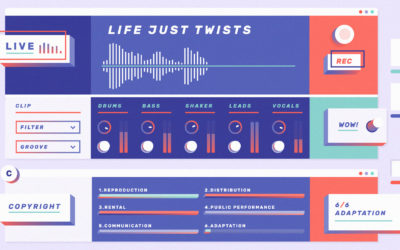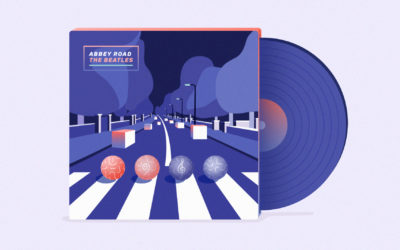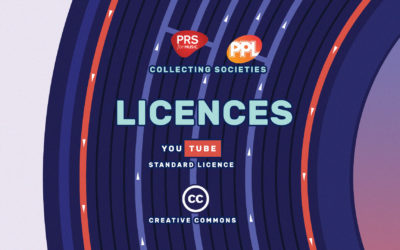4. DEALS: PUBLISHING AND RECORDING DEALS
Having written their song and performed at the open-mic, Tina and Ben want to find a wider audience for it and they also hope to make some money out of it. Traditionally there are two main types of contracts or ‘deals’ they are likely to seek in order to achieve this: a music publishing deal and a record deal. Although they are worried that these deals could be immensely complex, it is possible to identify the core elements of these copyright contracts…
The exclusive ‘bundle of rights’ identified in Track 1 in the song and the recording of the song form the foundations of two main pillars of the music industries: the music publishing industry and the recording industry.
The music publishing industry is primarily engaged in the acquisition and exploitation of the copyright in songs. Songwriters transfer control of the rights in their song, or even all of the songs they write during an agreed period, to the publisher. In return they receive a share in profits from the song in the form of royalties, and perhaps even an advance payment against future royalties. The copyright in the song will often revert to the ownership of the writer/s after an agreed term stated in the contract. In the UK, songwriters often transfer their rights to a publisher ‘subject to the rights of PRS’; i.e. they assign the performing right and communication to the public rights in their works directly to PRS (see Track 6).
As the name suggests, the recording industry is engaged in the production and dissemination of sound recordings. In most instances the record company will be the owner of the copyright in recordings they have paid for. The record deal will, like the publishing deal, usually make provision for artist royalties.
Record companies and music publishers offer creators access to support, specialist expertise and financial backing that otherwise might not be available to them. However, Ben and Tina must be aware that, until any advance payment and other costs such as recording and promotional expenses are paid back or ‘recouped’, they will not receive income from the copyright they have assigned or licensed in the deal.
An assignment of rights is akin to a full transfer of ownership, albeit not always on a permanent basis. A licence of copyright may be more limited in scope, and does not imply a full transfer of ownership. Creators are required to assign or license control over their song to the record company and/or publisher not only for the UK, but also often on a worldwide basis. Record companies and publishers will then administer the copyrights in other territories or engage local companies to do so.
In short, signing a deal has wide-ranging ramifications that Ben and Tina must consider. Before entering the agreement they should seek the advice of a specialist music lawyer. Indeed, a reputable record company and/or publisher will most likely to insist on this in order to ensure the contract is enforceable.
But where record and publishing deals were once seen as essential, in the Digital Age, technology has made it far easier for creators like Tina and Ben to release their own songs and recordings (see Track 5).
More Tracks
1. What constitutes a song?
A song is the combination of melody and words. Each is protected by copyright: the melody as a musical work and the lyrics as a literary work. One or the other could be used separately and still be protected.
2. Protecting your song
Copyright law protects against copying so the song must be ‘original’ and in some ‘fixed’ form (that could be copied). Tina and Ben could fix the song by recording it on a mobile phone or any other means of doing so, e.g. by writing it on a piece of paper.
3. Sound Recording Rights
The copyright in a sound recording is different from the copyright in a song in a number of significant ways.
5. Self-release: distributing music directly to the public
In the digital age many costs involved in recording and marketing music have been significantly reduced by the availability of affordable, accessible technologies.
6. Public Performance, Royalties and Collecting Societies
To reduce transaction costs for rights holders and rights users alike, collecting societies have been established in order to collectively negotiate and issue blanket licences to users, and to collect and distribute royalties to rights holders.
7. Licences
Aside from lyrics and melody of the song, and the recording of the music, copyright also subsists in the script, the artwork, the voiceover and the film/video itself.














